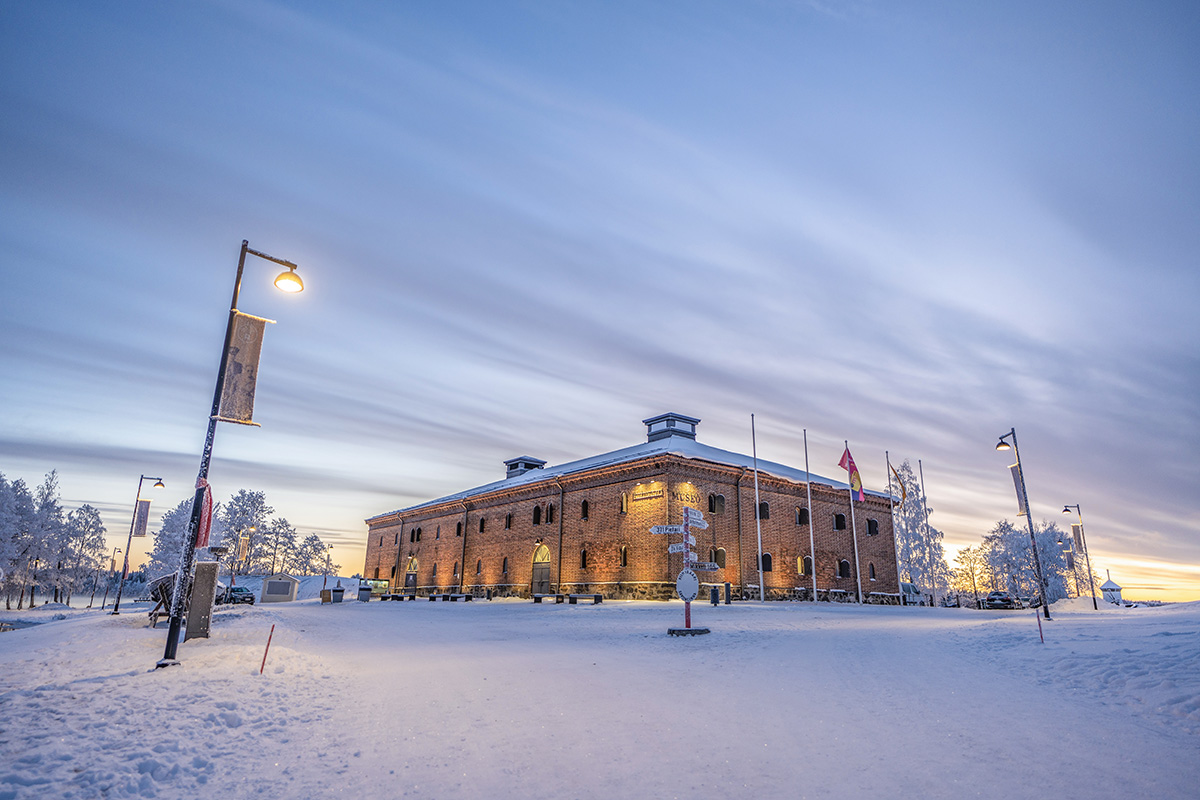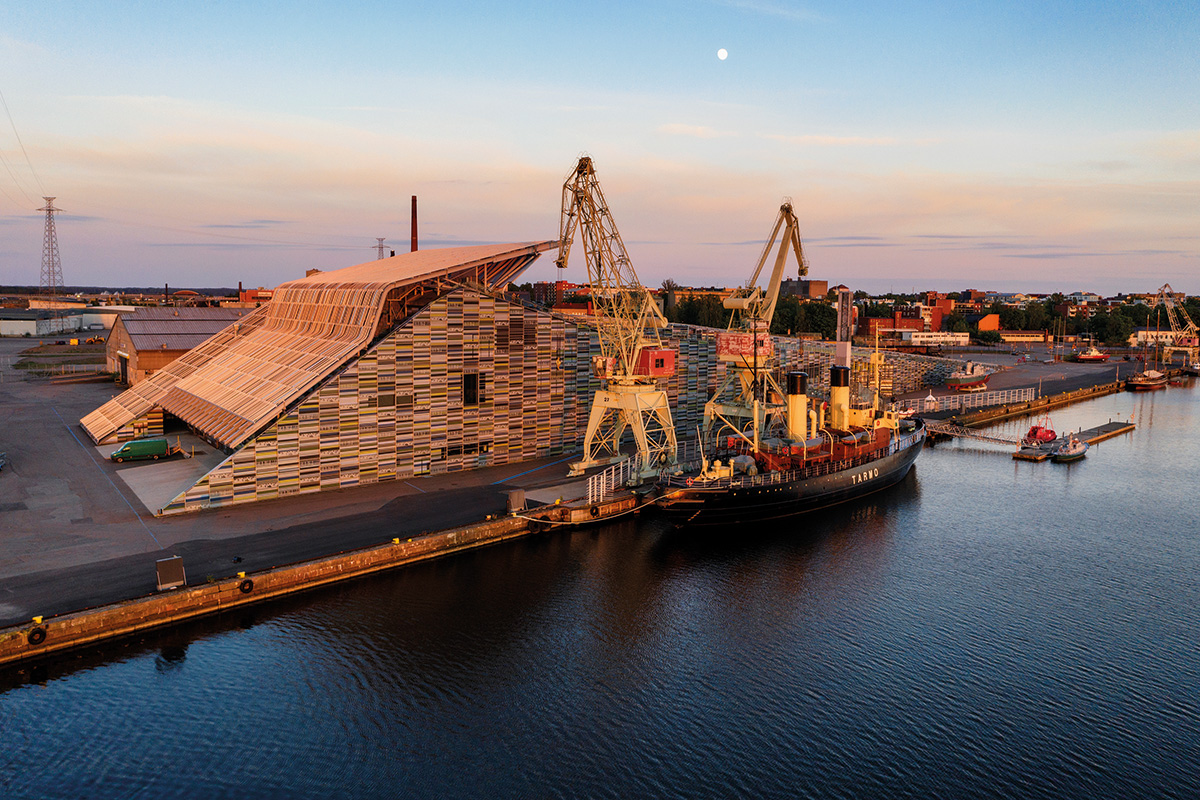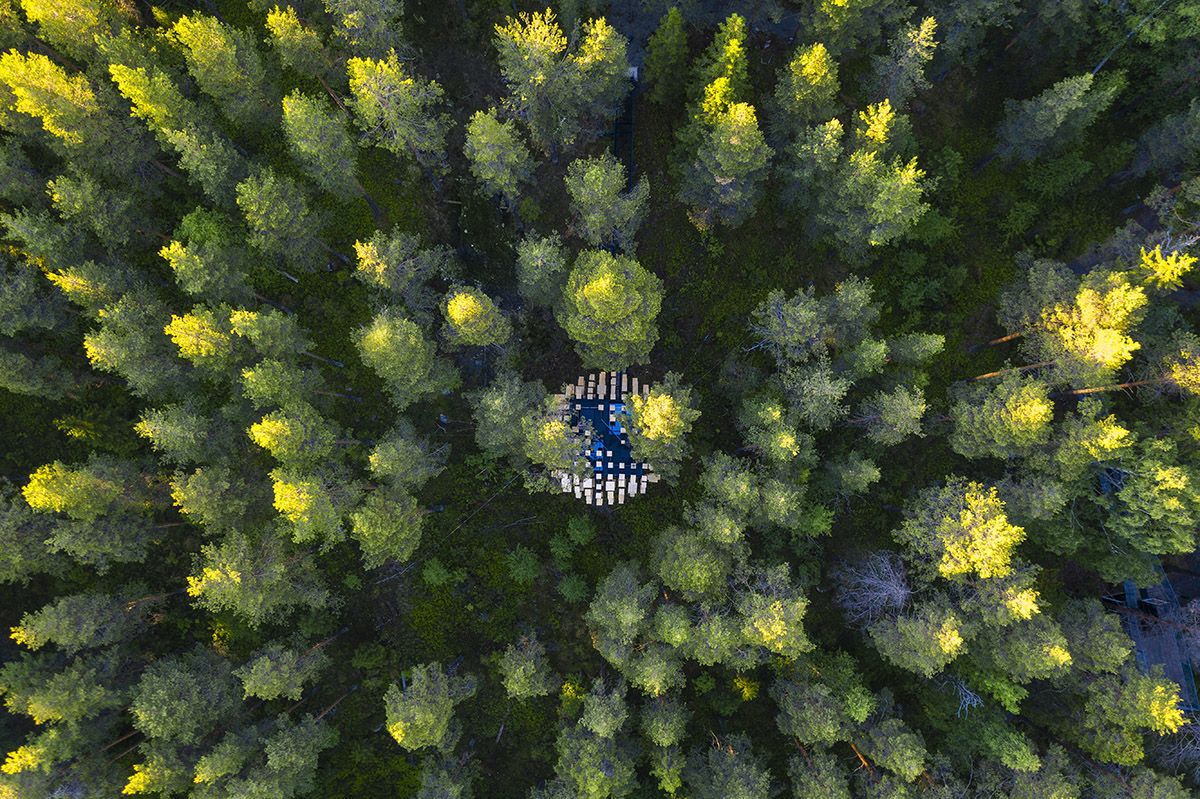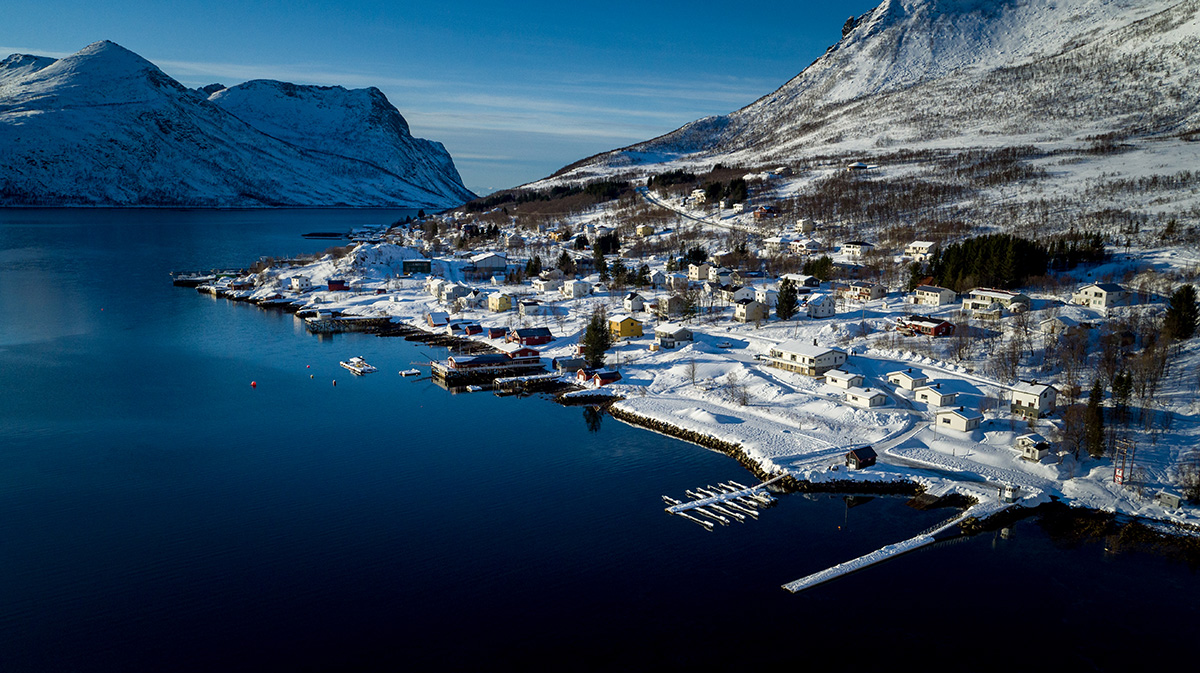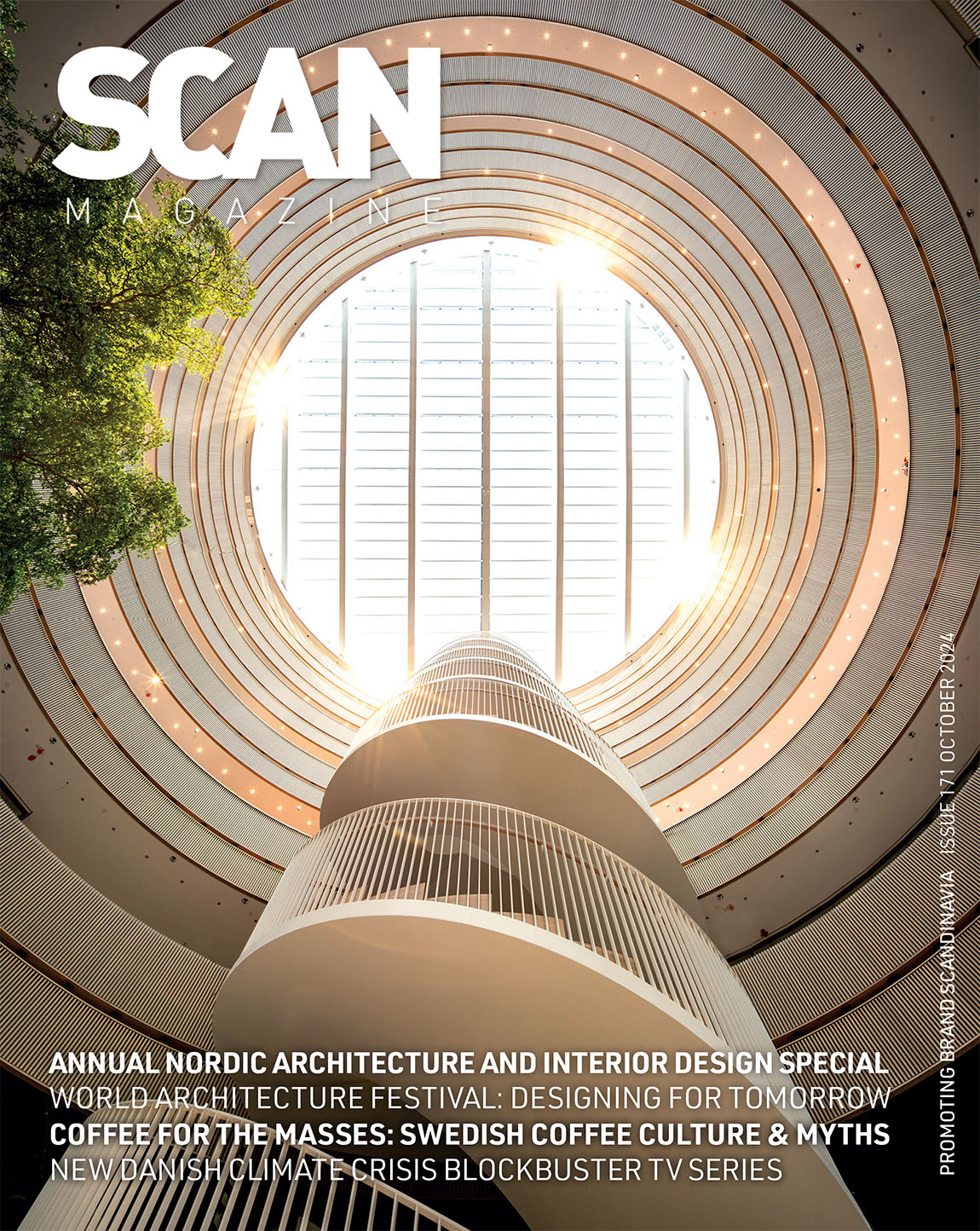Fjord & Bælt: Up close: Denmark’s native whales in their natural habitat
By Lena Hunter | Photos: Ard Jongsma
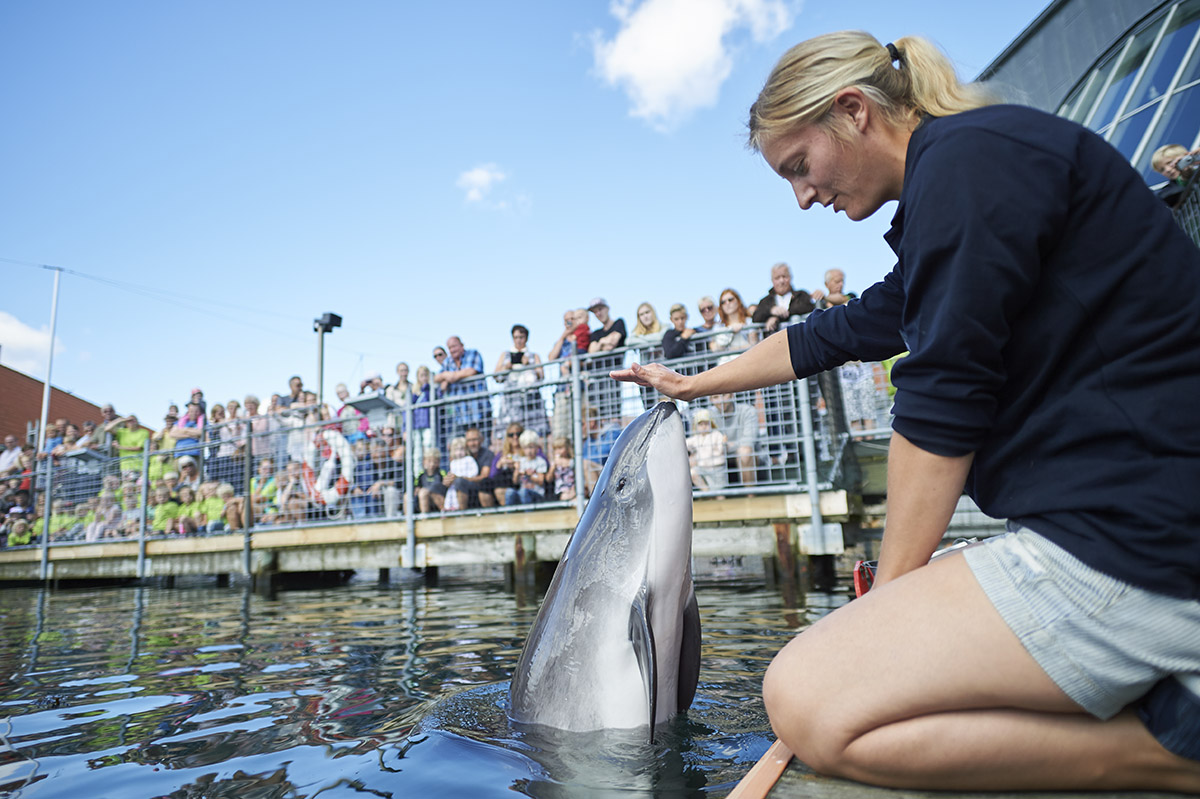
Have you ever seen a whale? At Fjord & Bælt, visitors have a rare chance to get up close to one of the world’s smallest species of whale. The centre – a combined tourism attraction and marine research institution – is lifting the curtain on its world-leading research into whale behaviour.
¨
“It may sound unlikely, but Denmark’s waters have the highest concentration of whales in the world – around 100,000 – because of the large population of harbour porpoises,” explains Fjord & Bælt’s communications director Mads Dirckinck-Holmfeld. Located in picturesque Kerteminde Harbour on the Danish island of Fyn, the centre is uniquely placed to observe harbour porpoises, harbour seals, and many species of fish in their natural habitat.
“How do offshore projects, shipping and ferry transport, sonar systems from ships and military and wind-turbines affect marine mammals? Whales navigate and hunt via sonar and sound travels 4.5 times faster underwater, so these activities have a huge impact. We work closely with the University of Southern Denmark and the Marine Biology Research Centre in Kerteminde on research that is used to inform infrastructure projects and environmental law, to improve the conditions of marine mammals in Denmark and elsewhere in the world,” explains Dirckinck-Holmfeld.
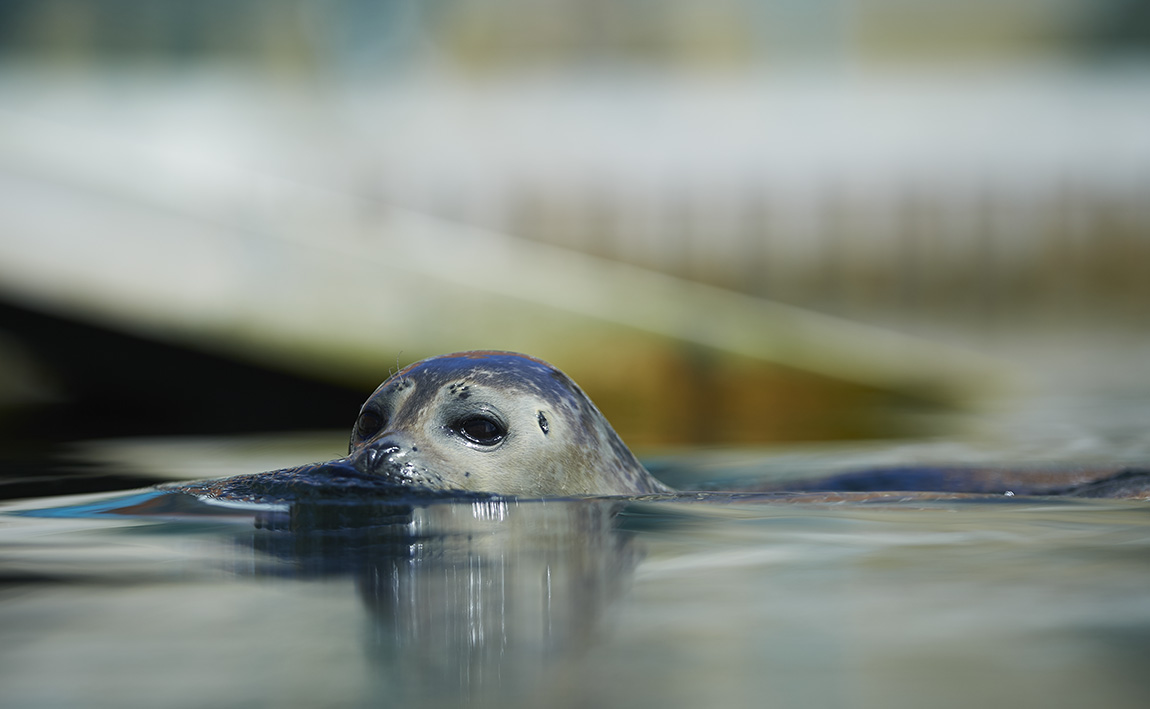
Meet the world’s oldest porpoise
“The centre is open to the public so people can come down, see what we do and learn about our work,” he continues. Fjord & Bælt runs exhibitions, school services and educational activities for visitors keen to get up close to marine life – but its main attractions are the three harbour porpoises, kept in a closed part of Kerteminde Harbour. “It’s not an aquarium – they’re living in their natural habitat, allowing for natural water and air temperatures, and they can hunt for live fish as they would in the wild,” says Dirckinck-Holmfeld.
“This year is our 25-year anniversary. One of our porpoises, Freja, is 27 years old – older than Fjord & Bælt! She is the longest living captive porpoise in the world. In the wild, their lifespan is between five and seven years.”
Harbour porpoises are highly-intelligent, often mythologised creatures – and Fjord & Bælt offers a rare chance to observe them up close: here, visitors can meet Freja by walking through a stunning under-sea tunnel. “You can see how the animals swim around down there. We also have feedings and trainings three times a day for the public, and guests can come and meet the researchers and the trainers,” says Dirckinck-Holmfeld. “Our mission is to motivate nature conservation through experience, entertainment, inspiration and understanding.”
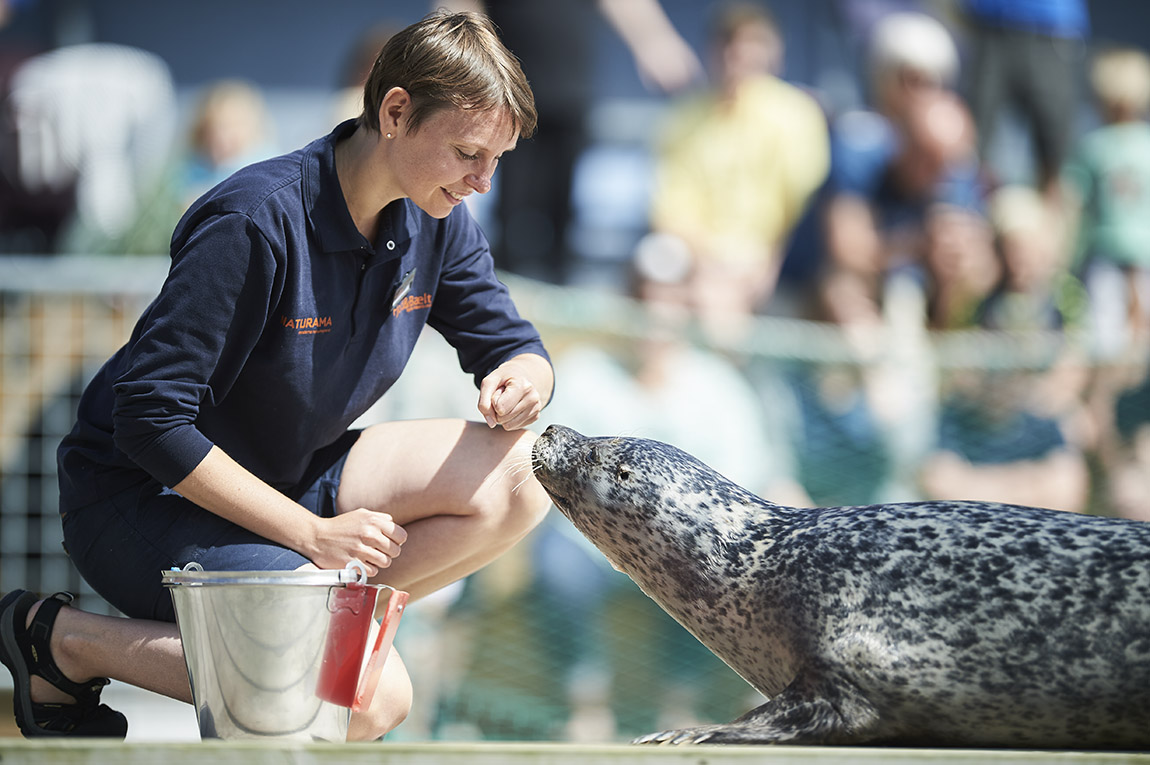
Web: www.fjordbaelt.dk Instagram: @fjordogbaelt Facebook: fjordogbaelt
Subscribe to Our Newsletter
Receive our monthly newsletter by email

